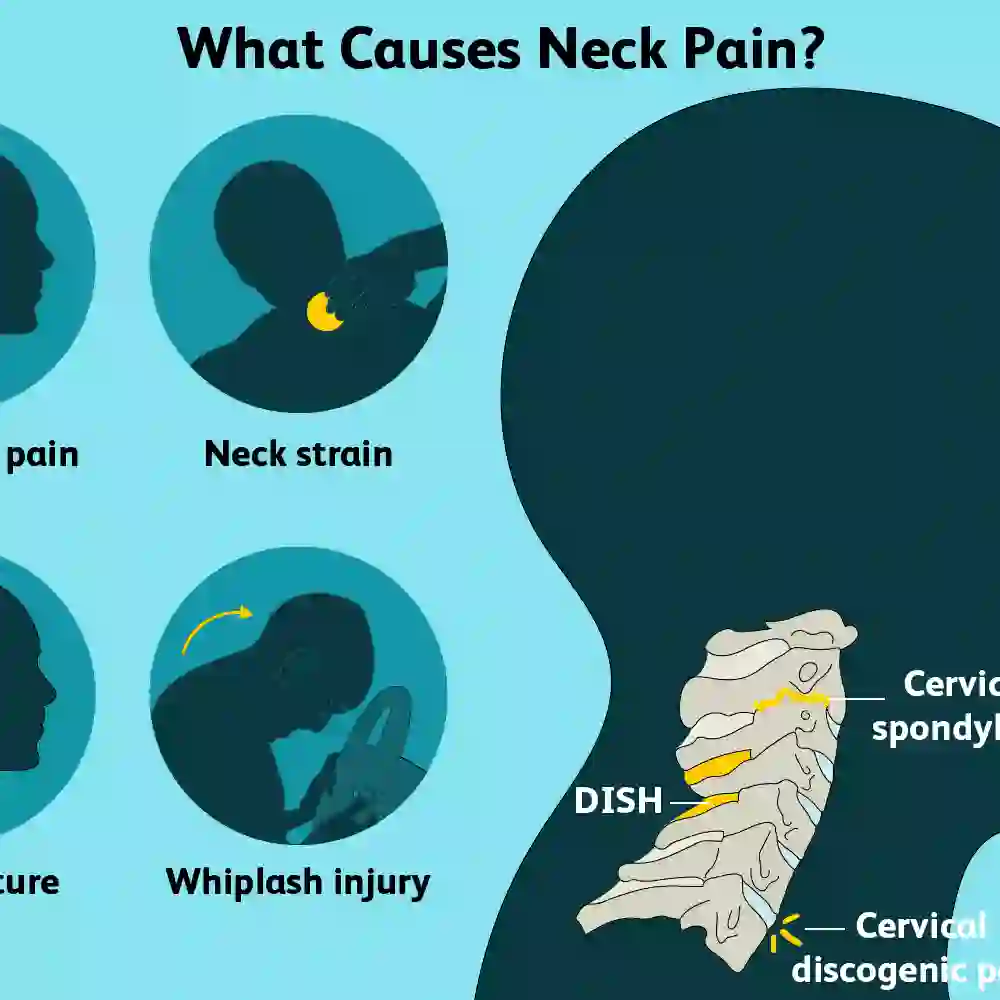What is neck pain?
Many people experience occasional neck pain or stiffness. In many cases, this is from poor posture or overuse, or sleeping in an awkward position. Although neck pain is caused by an injury from a fall, contact sports, or whiplash.
Most of the time, neck pain is not a serious condition and could be relieved within a few days.
But in some cases, it can indicate serious injury or illness and require a doctor’s attention.
Symptoms of neck pain
symptoms can range in severity and duration from reliable sources. Oftentimes, it is severe and lasts only a couple of days or weeks. Other times, it can become chronic. This may be mild and not interfere much with your activities or daily life, or it may be severe and cause disability. If you feel you are suffering from back pain you can take help from dr essa laboratory.
Symptoms of this may include:
Stiffness in the neck. People with pain often describe feeling as if their neck is “stiff” or “stuck.” It can sometimes cause a limited range of motion.
Sharp pain Neck pain can feel like a sharp or “stabbing” pain that is localized to one area.
Pain when moving. This is often caused by moving your cervical spine, twisting it, either side to side, or up and down.
Diffuse pain or numbness. Your neck pain can radiate to your head, trunk, shoulders, and arms. If your neck pain involves nerve compression, you may experience numbness, tingling, or weakness in one of your arms or hands. This is from a pinched nerve and can feel like a burning or sharp pain that starts in the neck and travels down the arm
Headache. Pain that starts in your neck can also lead to a headache called a cervicogenic headache. Neck pain along with a headache can also be a symptom of a migraine headache.
Pain on palpation. Neck pain may worsen if your cervical spine is palpated (physically examined).
Causes of neck pain
- Neck pain or stiffness can occur for a variety of reasons.
- Muscle tension and stress
- This is usually through activities and behaviors such as:
- Poor currency
- Sleeping with a neck in a bad position
- Jerking your neck during exercise
Injury
The neck is particularly unsafe for injury, especially in falls, car accidents, and sports, where the muscles and ligaments of the neck are forced beyond their normal range.
If the neck bones (cervical vertebrae) are broken, the spinal cord can also be damaged. A neck injury caused by a sudden blow to the head is commonly called whiplash.
Heart attack
This can also be a sign of a heart attack. It presents with other symptoms of a heart attack, such as:
- shortness of breath
- Sweating
- Nausea
- vomit
- Arm or jaw pain
- If you have this pain and other symptoms of a heart attack.
Meningitis
Meningitis is an inflammation of thin tissue which surrounds the brain and spinal cord. People who have meningitis may experience:
- Stiffness in the neck
- Headache
- Nausea
- vomit
- Light sensitivity
- fever
- Meningitis could be fatal and is a medical emergency.
- Get medical help right away if you have symptoms of meningitis.
Other reasons
Other causes of neck pain include:
Rheumatoid arthritis causes pain, swelling of the joints, and inflammation of the bones. When these occur in the neck region, this pain may occur.
This condition often occurs in the hands and knees, but it can also occur in the neck.
As you age, cervical discs can degenerate. This is known as osteoarthritis of the neck, or spondylosis. It can decrease the space between the vertebrae. It can also increase the stress on your joints.
When a disc protrudes, such as from trauma or injury, it can put pressure on the spinal cord or nerve roots. This is called a herniated cervical disc, also known as a ruptured one.
Spinal stenosis occurs when the spinal column narrows and causes pressure on the spinal cord or nerve roots as it exits the spine. This can be caused by long-term inflammation due to arthritis or other conditions.
In rare cases, neck stiffness is caused by:
- Congenital abnormalities
- Infection
- Abscesses
- Tumor
- Spinal cord cancer
- When to see your doctor
- See a doctor if you have:
- A lump in your neck
- fever
- Headache
- Swollen glands
- Nausea
- vomit
- Difficulty swallowing or breathing
- weakness
- Apathy
- Annoyance
- Pain that radiates down your arms
- Inability to move your arms or hands.
- Bladder or bowel disorders
If you have been in an accident or fall and have neck pain, seek medical attention immediately.
How is neck pain treated?
Be prepared to tell them the details of your symptoms. Also, tell the doctor about all prescription and over-the-counter (OTC) medications and supplements you are taking. For medications, you can visit the best online pharmacy in Pakistan.
Even if it doesn’t seem relevant, tell your doctor about any recent injuries or accidents you’ve had.
Treatment of this depends on its cause. Help to:
- Blood tests
- X-ray
- CT scan
- MRI scan
- Lumbar puncture (spinal tap)
- Treatments of this may include:
- Ice and heat therapy
- Exercise, stretching, and physical therapy
- Pain medications
- Corticosteroid injection
- Muscle relaxants
- Neck collar
- Krishna
- Antibiotics if you have an infection
- Hospital treatment, if there is a condition such as meningitis or heart attack.
- Surgery, which is rarely necessary.
- Alternative treatments include:
- Acupuncture
- Chiropractic treatment
- Massage
- Transcutaneous electrical nerve stimulation (TENS)
Make sure you are seeing a licensed professional when using these methods.
How to relieve neck pain at home
Apply ice for the first few days. Next, apply heat with a heating pad, hot compress, or hot shower.
Take a few days off from sports, activities that irritate your symptoms, and heavy lifting. When you resume normal activity, do so gradually as your symptoms ease.
Exercise your neck every day. Slowly stretch your head to the side and in an up-and-down motion.
- Practice good posture.
- Avoid swinging the phone between your neck and shoulder.
- Change your position often.
- Gently massage the neck.
- Use a special neck pillow for sleeping.
- Do not use a neck brace or collar without your doctor’s approval.
What is the view for people with neck pain?
Many people experience this pain due to poor posture and muscle tension. In these cases, your neck pain should go away if you practice good posture and relax your neck muscles when they are sore.
If your neck pain doesn’t improve with home remedies, see a doctor.












